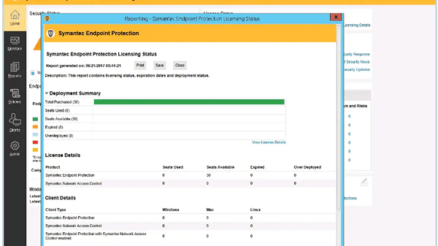User authentication is the cornerstone of any secure digital experience in today’s widely interconnected enterprise technology landscape. While Okta has established itself as a renowned identity and access management (IAM) solution, numerous businesses explore alternatives due to pricing, customization, or integration requirements. These alternatives vary in how they handle user authentication, often providing unique strengths in their approach to managing identities, securing login processes, and integrating third-party systems.
Most Okta alternatives adopt a multi-pronged approach to user authentication, incorporating modern security protocols, customizable workflows, and robust identity federation. Some of the notable players in this space include Auth0, Microsoft Azure Active Directory (Azure AD), Ping Identity, ForgeRock, and OneLogin. Each of these platforms presents a slightly different take on how to secure and manage user access.
Key Authentication Mechanisms Used by Okta Alternatives
Okta alternatives implement a range of standard and advanced authentication methods designed to secure access across various applications and services.
- Single Sign-On (SSO): Nearly every Okta competitor offers SSO capabilities, allowing users to log in once and gain access to multiple systems. This boosts user productivity and reduces the risk associated with multiple password usage.
- Multi-Factor Authentication (MFA): MFA is a must-have for secure systems. Alternatives like Azure AD and OneLogin provide flexible MFA options such as SMS codes, authenticator apps, biometric recognition, and hardware tokens.
- OAuth, OpenID Connect, and SAML: These are industry-standard protocols for identity federation, used widely by alternatives to enable secure authentication across different platforms and domains.
[ai-img]user login screen, single sign on, identity access management[/ai-img]
Customization and Developer Friendliness
A key difference among Okta alternatives lies in how customizable and developer-friendly they are. Tools such as Auth0 are particularly popular among developers due to their extensive documentation, SDKs for various languages, and the ability to insert custom authentication logic via serverless functions called ‘Rules’ or ‘Actions’.
ForgeRock and Ping Identity focus more on enterprise-level deployments and offer deep customization through policy-based access control and identity orchestration. Azure AD, integrated with the Microsoft ecosystem, allows administrators to control authentication policies via Azure’s broad governance tools.
Integrations and Ecosystem Compatibility
Alternatives to Okta recognize the importance of seamless connections with third-party tools and platforms. Azure AD, for instance, works tightly with Office 365, Teams, and other Microsoft services. Meanwhile, OneLogin offers pre-built connectors to over 6,000 applications, allowing quick provisioning and de-provisioning of users.
Ping Identity shines in hybrid IT environments by offering connectors that bridge cloud and on-premise systems. This is especially useful for companies in a transition phase from legacy systems to cloud-based architectures.
[ai-img]cloud apps integration, sso, mfa options[/ai-img]
Security and Compliance Standards
Organizations handling sensitive data must adhere to industry-specific compliance requirements such as GDPR, HIPAA, and SOC 2. Okta alternatives place a strong emphasis on ensuring their authentication systems are compliant with these standards. For example, ForgeRock incorporates risk-based authentication and real-time threat detection to enhance protection.
Microsoft’s Azure AD boasts compliance with dozens of international standards, making it suitable for global enterprises. These systems also offer user behavior analytics to identify and mitigate suspicious login attempts in real time.
FAQ: How Do Okta Alternatives Handle User Authentication?
- Q: What protocols do Okta alternatives use for authentication?
A: Most alternatives use OAuth 2.0, SAML, and OpenID Connect to enable secure and interoperable authentication. - Q: Can I use biometric authentication with other platforms?
A: Yes. Many alternatives like Auth0, ForgeRock, and Azure AD support biometric options either natively or through integration with external services. - Q: Do Okta alternatives offer SSO?
A: Almost all established alternatives provide SSO capabilities to streamline user access across multiple applications. - Q: Are these authentication platforms developer-friendly?
A: Platforms like Auth0 are known for their developer-first approach, offering APIs, SDKs, and documentation to simplify integration. - Q: How do these platforms ensure compliance with regulations?
A: Alternatives invest in obtaining certifications and offer features like audit logging, threat detection, and data residency options to ensure compliance.





